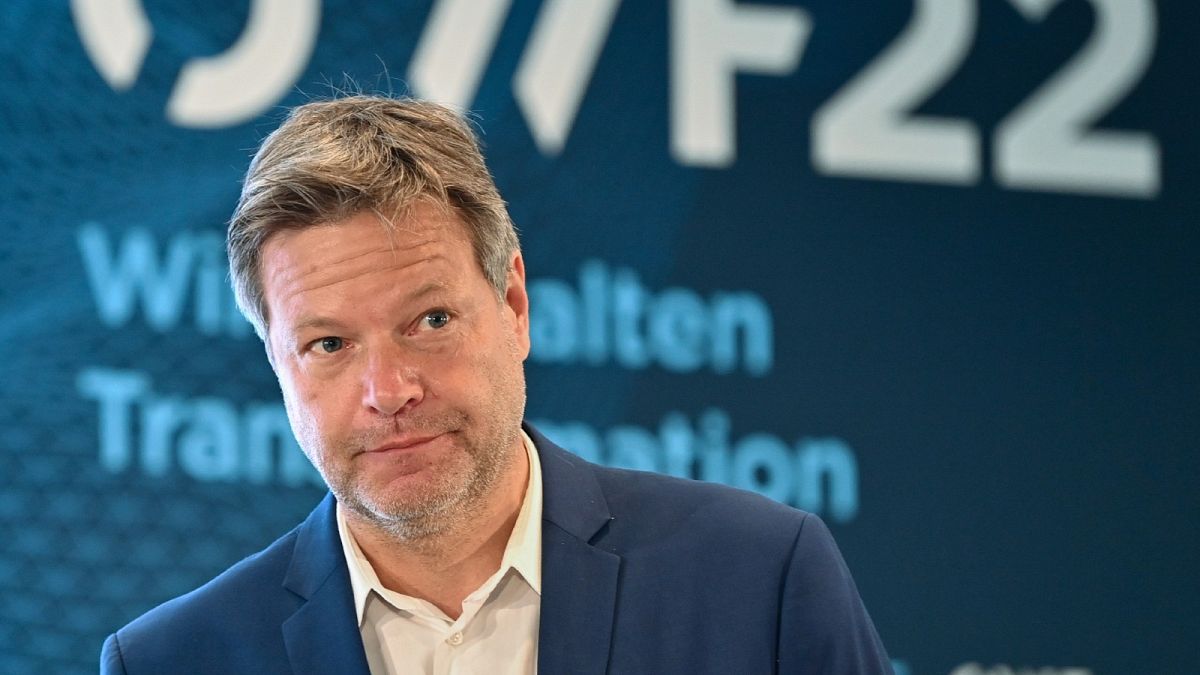German is stepping up its appeal to residents to look for ways of saving energy, after Russia's Gazprom announced significant cuts in natural gas deliveries to the country through a key pipeline.
Germany is stepping up its appeal to save energy after Russia's Gazprom announced significant cuts in natural gas deliveries to the country through a key pipeline.
On Tuesday, Gazprom announced that it was cutting gas flows through the undersea Nord Stream 1 pipeline to Germany by 40%.
A day later, it announced a further cut, bringing the overall reduction to about 60%.
German Vice-Chancellor Robert Habeck said in a video posted on Twitter that Russian president Vladimir Putin "is doing what was to be feared from the beginning – he is reducing the volume of gas, not in one go but step by step”.
In both cases, the Russian state-owned gas company cited technical problems, saying that Canadian sanctions over the war in Ukraine had prevented German partner Siemens Energy from delivering equipment that had been sent for overhaul.
The German government, however, has rejected this argument, saying that maintenance shouldn't have been an issue until the fall and that the Russian decision was a political gambit to sow uncertainty and push up prices.
Reduced flow
The reduction in gas flows comes as Germany and the rest of Europe try to reduce their dependence on Russian energy imports.
On Thursday, Italian energy giant Eni said Gazprom was set to reduce gas supplies to the country the following day by 50%, while France has said that it is no longer receiving any Russian gas via pipelines.
Germany, Europe's biggest economy, receives about 35% of its gas to power industry and generates electricity from Russia, placing it in a particularly vulnerable position.
Even so, the Federal Network Agency of Germany said it had no concerns about German gas supplies, adding that storage facilities were significantly fuller than in previous years.
The news of the reductions sent short-term natural gas prices sharply higher in Europe. Month-ahead spot prices rose 13% Thursday, and up 40% since Monday.
Habeck, who is also Germany’s economy minister, launched an official campaign for people to save energy last week but stressed that there were no supply issues in the country.
“Gas is coming to Europe — we have no supply problem, but the volumes of gas must be acquired on the market and it will get more expensive,” Habeck said Wednesday.
Habeck highlighted earlier Russian moves to cut supplies to Bulgaria, Denmark and others. He added that the Germany government is prepared, and noted that it had enacted legislation requiring gas storage facilities to be filled.
He also lauded the willingness of Germans and German business to save energy and store gas.
“Now is the time to do so,” he said. “Every kilowatt hour helps in this situation. It is a situation that is serious, but not a situation that endangers supply security in Germany.”
